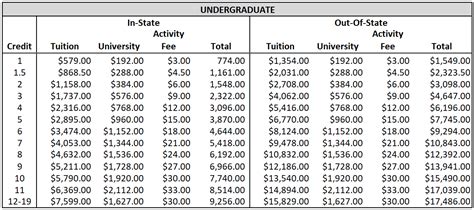Overview
The New Jersey Institute of Technology (NJIT) is a renowned research university offering a wide range of graduate programs. Aspiring students considering an NJIT master’s degree should thoroughly research the associated tuition fees to make informed financial decisions. This article delves into the details of NJIT masters tuition, providing an in-depth analysis of costs, factors influencing tuition, and payment options.

Tuition Rates
Tuition rates at NJIT vary depending on several factors, including the specific program, student status (in-state or out-of-state), and enrollment type (full-time or part-time). According to NJIT’s tuition and fees website, full-time graduate tuition for the 2023-2024 academic year is as follows:
| Program Category | NJ Resident | Non-NJ Resident |
|---|---|---|
| Engineering | $20,706 | $32,814 |
| Science and Technology | $18,786 | $29,922 |
| Management | $18,336 | $29,472 |
| Humanities and Social Sciences | $17,844 | $29,030 |
Part-time graduate tuition is calculated on a per-credit basis, with rates ranging from $1,060 to $1,299 per credit hour.
Factors Influencing Tuition
Program Selection
The specific master’s program chosen significantly impacts tuition costs. Programs with higher research costs or more specialized coursework tend to have higher tuition rates. For instance, the Master of Science in Electrical Engineering costs $20,706 for NJ residents and $32,814 for non-NJ residents, while the Master of Arts in Liberal Studies costs $17,844 for NJ residents and $29,030 for non-NJ residents.
In-State vs. Out-of-State Status
NJIT offers a significant tuition discount for in-state students. New Jersey residents typically pay about 30-40% less in tuition than out-of-state students. This difference is due to the state’s investment in supporting higher education for its residents.
Enrollment Type
Full-time students pay a flat tuition rate regardless of the number of credits taken within a semester. Part-time students pay per credit hour, allowing them to tailor their course load to their financial situation and availability.
Payment Options
NJIT offers flexible payment options to accommodate different student financial situations. These options include:
- Direct payment: Students can pay their tuition and fees directly to NJIT through an online portal or by mail.
- Installment plan: Students can spread their tuition payments over multiple installments throughout the semester.
- Financial aid: NJIT offers a range of financial aid options, including scholarships, grants, and loans, to help eligible students cover tuition costs.
Financial Considerations
Cost of Attendance
In addition to tuition, graduate students should also consider other expenses associated with their education, such as housing, food, transportation, and course materials. The total cost of attendance for NJIT graduate students is estimated to be around $35,000 to $50,000 per year, depending on factors such as living arrangements and lifestyle choices.
Return on Investment
The high cost of graduate education can raise concerns about the potential return on investment (ROI). However, studies have shown that individuals with master’s degrees earn significantly more over their careers than those with only bachelor’s degrees. According to the National Center for Education Statistics, individuals with master’s degrees earn an average of 17% more than those with bachelor’s degrees.
Considerations for International Students
International students should be aware of additional costs associated with studying in the United States, including visa fees, health insurance, and living expenses. NJIT provides support services and resources specifically designed for international students to help them navigate these challenges.
Applications for Graduate Studies
NJIT accepts applications for graduate studies on a rolling basis. Students are encouraged to submit their applications early to increase their chances of admission and secure funding opportunities. The application process includes submitting transcripts, letters of recommendation, a personal statement, and any other required materials.
Conclusion
NJIT offers a wide range of master’s programs with tuition rates varying depending on the specific program, student status, and enrollment type. By carefully considering the factors influencing tuition and exploring the available payment options, prospective students can make informed financial decisions. The investment in an NJIT master’s degree has the potential for a significant return on investment, both personally and professionally.
